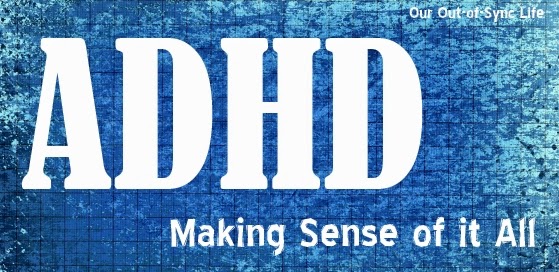 |
| image source |
After reading “Welcome to Our Story,” you know that two of our children have been diagnosed with ADHD. Little Man for the hyperactivity side and Bubs more for the attention issue. Unfortunately Bubs doesn’t have an open-shut case because of the Executive Function Disorder (Frontal Lobe), Sensory Processing Disorder, and anxiety, but we will cover that later.
With my education background, I thought I understood ADHD. I thought I had an understanding of what parents and these kids go through each day.
I was clueless.
I had no idea the exhaustion, frustration, and….interrupted expectations that these families face day-in and day-out.
Because I desire to encourage those of you who live with ADHD, I want to share some of the interesting facts that I have been learning in the plethora of books on ADHD that I borrowed from the library. Just some light reading material! And even if you aren’t personally affected by ADHD or other similar disability, please continue reading because you never know when God will place in your path a tired momma who needs encouragement
and a listening ear.
ADHD used to be highly discussed but now that Autism and Asperger’s has entered the scene, it isn’t as prevalent. No matter, it is real. It is a disability and causes a lot of heartache and frustration for millions of children and their parents.
What is ADHD?
ADHD stands for Attention Deficit Hyperactivity Disorder. There are three types of ADHD: Inattentive, Combined, Hyperactive-Impulsive. No longer is there a distinction between ADD (which was for those with inattentive attention) and AHDH (which was for those with hyperactivity). They are now both called ADHD and are clarified as three different types.
What are key traits?
The key traits of this neurologically based disorder include developmentally inappropriate levels of impulsivity and inattention and, in some cases, hyperactivity.
Authors Forgan and Richey of Raising Boys with ADHD: Secrets for Parenting Healthy, Happy Sons
put it this way:
ADHD is highly disruptive, involved too much energy or being too distracted and is neurologically based. The behaviors must occur to a degree that is highly atypical of children the same age and must interfere with academic or social progress. Finally the behavior must occur across multiples settings.
In his book, Taking Charge of ADHD: The Complete, Authoritative Guide for Parents, Russell Markley, PhD has this to add:
ADHD probably is not primarily a disorder of paying attention but one of self-regulation: how our sense of self develops so that we can manage ourselves within the larger realm of social behavior. … The phenomenon we call ADHD is … a disturbance in a child’s ability to inhibit immediate reactions to the moment so as to use self-control with regard to time and the future. That is, those with ADHD ultimately suffer from an inability to use a sense of time and of the past and future to guide their behavior [emphasis mine].
Notice that ADHD is not a discipline issue. I can’t discipline Bubs or Little Man out of their issues. Nor can another else. The problems that both of them have occur in all situations and with all adults. While it is worse with us (home is a safe place while they work so hard to keep it together when around others), there symptoms are evident in multiple settings.
Authors Forgan and Rickey state that children with ADHD are not able to “behave consistently, independently, or predictably.” As a mom, this is the hardest part. This is not to say that with time and assistance that they can’t learn to handle the impulses but at the peak of the mountain it can look very bleak.
Causes?
There is a strong hereditary component and other factors may increase the likelihood of developing ADHD, including extreme stress during pregnancy, prenatal exposure to alcohol and tobacco, premature delivery, extremely low birth weight, very high lead levels in the body, and injury to the prefrontal regions of the brain after birth. (The studies are inconsistent on this though.)
If you think your child has ADHD?
Talk to your doctor. He or she can help you decide what is normal, childlike behavior vs extreme behavior.
Side note from our experience. Sadly, there are a few doctors who are apt to stick a label on any child who walks into his/her office. In looking for a neuropsychologist for Bubs, we chose to drive 3 hours vs go to a local clinic due to the high amount of autism diagnoses that occur. While a label may be “impressive” to the world and gain you lots of sympathy, a path of help is the goal. A wrong diagnosis will not help the child learn to cope with the issues. A wrong diagnosis won’t give your child the help he or she needs. I encourage you to get several opinions. With both boys we have gotten the opinion of a pediatrician, psychiatrists, and behavior therapist (and neuropsychologist with Bubs).
If your child is diagnosed with ADHD, get support for your child and yourself. Do not try to navigate these waters alone. There are professionals who specialize in helping these kiddos. Also find other mommas who understand. It can be a very lonely journey without the encouragement of those who have been there.
This is just a drop in the bucket of the information that I want to share with you about ADHD. Be sure to subscribe to this blog as I will be sharing helpful ideas that we have integrated into our home!